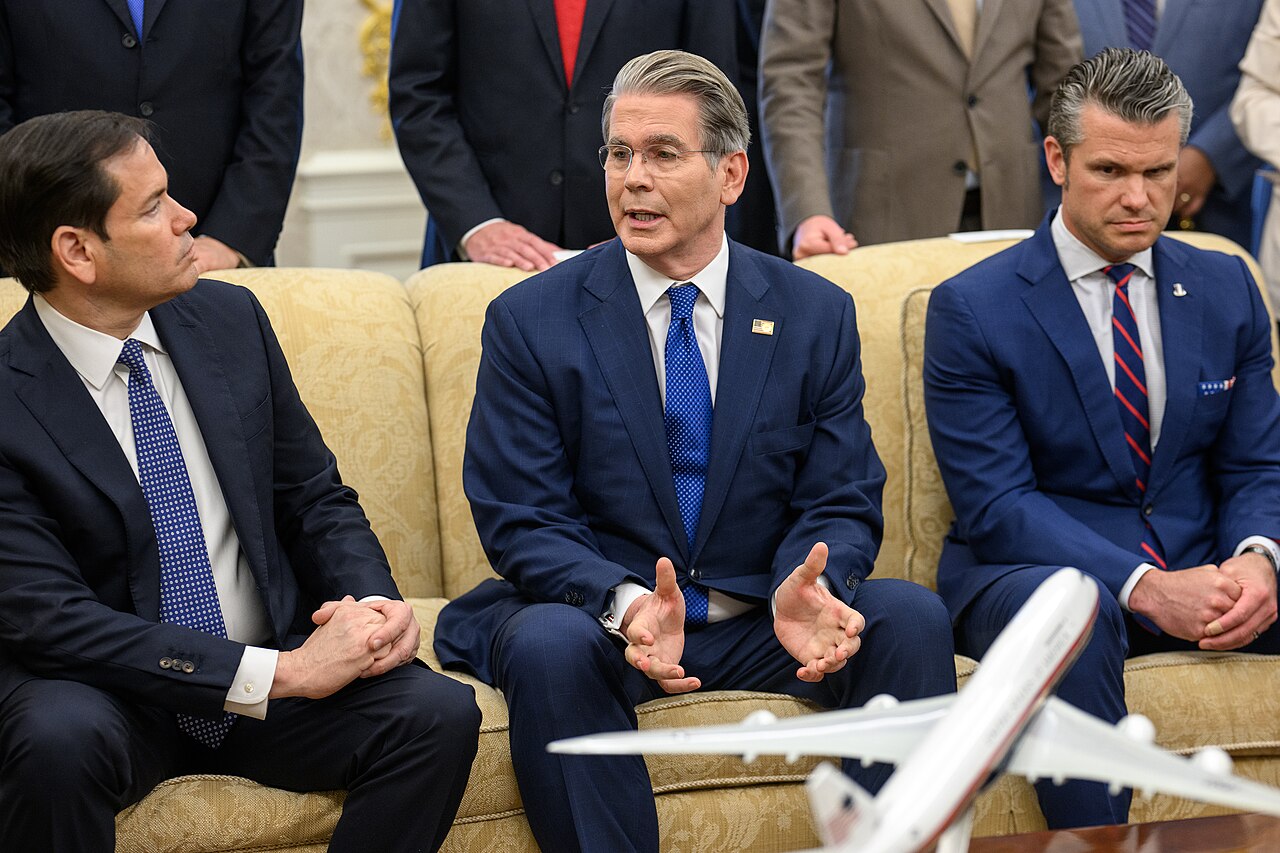BHP’s high-stakes tilt for Anglo puts regulators in spotlight

BHP Group Ltd.’s audacious approach for Anglo American Plc stands to reshape the global mining industry if it succeeds as planned, and antitrust authorities from China to South Africa and Japan are likely to play as important a role as shareholders in determining the final outcome.
The proposed $39 billion combination — which has been rejected by the smaller rival — would create the world’s largest copper producer, with about 10% of supply, and add heft to BHP’s already significant iron ore and coal operations. It would also require Anglo to divest South African subsidiaries. That’s more than enough to trigger intense oversight by regulators concerned about implications for market concentration and access to key minerals.
With BHP, Anglo and rivals pondering their next moves, here’s a run through the global antitrust landscape.
China
While Anglo American produces a varied suite of commodities from more than a dozen jurisdictions that span the globe, the biggest likely antitrust obstacle to its ambition focuses squarely on copper. It’s the heart of the deal’s rationale for BHP, given the metal’s role in the energy transition, but also a major concern for governments everywhere — nowhere more so than in China, the top consumer of the metal.
“I would totally anticipate that China would complain, full stop,” Allan Trench, professor at the University of Western Australia Business School, told Bloomberg, highlighting concerns about copper concentrate. That portion of the market — the semi-processed form of the metal – has been very tight this year, forcing smelters into debilitating competition for supplies.
Beijing has established form when it comes to forcing an acquiring company into select divestments to secure antitrust approval. In 2013, Glencore Plc was able to secure its $30 billion takeover of Xstrata Plc — but after agreeing to sell the Las Bambas copper mine in Peru, following concerns raised by China’s regulator. The asset went to a Chinese producer.
Since then, however, much has changed. It’s unclear Beijing would, in 2024, be able to impose a penalty and benefit from the remedy. Trade tensions between China and Western nations are more elevated, including around strategic minerals and Beijing’s dominance of green technology.
The shift toward clean fuel has also turbo-charged expectations for copper demand, while miners are only finding it harder — and more costly — to bring new pits online.
“Glencore’s bid for Xstrata came at a time when the China demand story had already been driving the copper price for more than a decade and there were some questions over how long that had to run further,” said Craig Lang, principal analyst at CRU Group. “It was pre the green-energy transition, which is driving the demand outlook today.”
WilmerHale law firm partner Lester Ross said that Beijing would have concerns, stressing that China would want to ensure supply is unaffected. “The most important thing — more than the price setting — is simply access to, and control of, the resource,” Ross said.
Peter Arkell, chairman of the Global Mining Association of China and managing director of consultants Carrington Day, said both BHP and Anglo were good suppliers to the Chinese market: “They both have very strong relationships with China, so I don’t think, from that point of view, China’s going to be concerned.”
Of course, China could still benefit from the deal, if metals heavyweights like China Minmetals Corp. acquire assets that BHP wants to — or is forced to — divest.
South Africa
Anglo may have its roots in South Africa, but BHP’s putative deal envisages the spinoff of its controlling stakes in local platinum and iron ore companies to its shareholders as a condition. With the country due to head to the polls, that’s already touched a nerve.
A keenly contested race, this month’s election could see the ruling party lose its majority for the first time since the African National Congress came to power in 1994. The opposition has already presented BHP’s bid as a stinging rebuke of the government’s handling of the economy in a country with one of the world’s highest unemployment rates and deteriorating infrastructure.
“The South Africans will be pretty worried, given the prominent position of Anglo’s history of significant participation in the South African economy,” said Arkell. “From the South African regulator’s point of view, if a Chinese entity entered the discussion for some or all of Anglo’s assets, the South African regulators might say ‘Actually, we prefer that’.”
Chile
There may be a smoother ride in Chile, where Anglo’s interests include a stake in the giant Collahuasi mine. While the authorities may take a look at the potential deal’s impact, they aren’t expected to impose any significant restrictions given the country ships out almost all of the copper it mines.
“In antitrust terms, in Chile there are no risks from the point of view of copper production, since Chile practically does not consume this metal,” said Juan Ignacio Guzman, head of GEM, a mineral consulting firm in Chile.
Chile’s competition authority, meanwhile, has declined to comment on any antitrust issues given it hasn’t been notified of, or studied, the BHP proposal.
Japan
Japanese authorities are also likely to run the slide rule over any transaction, in part because adding Anglo’s coal and iron ore mines in Australia and Brazil to BHP’s already extensive portfolio could rattle Japanese steel mills, which rely heavily on external supplies. In the steelmaking-coal business, a combined business could account for as much as 19% of all seaborne shipments, although that’s less than BHP’s share in 2022, according to Bloomberg Intelligence.
Rest of World
Given the size and significance of the potential bid, BHP will need to notify competition authorities in countries or blocs such as the European Union beyond the dozen or so in which Anglo produces materials. Back in 2012, the EU authorities gave their seal of approval to Glencore’s takeover of Xstrata after the former resolved concerns that centered on preserving competition in zinc, offering to sell its stake in the then-largest producer of the metal.
“Many countries’ competition laws have extraterritorial reach,” said Wendy Ng, an associate professor at the University of Melbourne’s law school. “I would expect that BHP-Anglo American will need to file for merger competition review in countries beyond the 12” that Anglo operates in, she said.
BHP declined to comment for this story.
(By Paul-Alain Hunt and James Attwood)
More News
{{ commodity.name }}
{{ post.title }}
{{ post.date }}




Comments